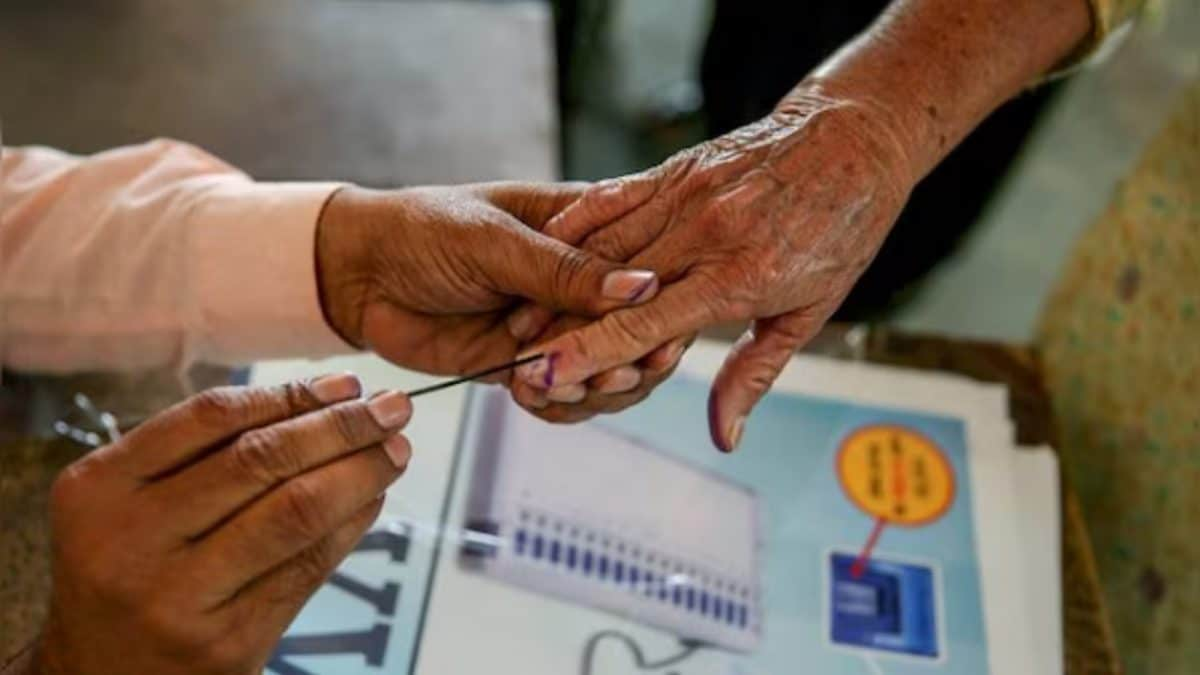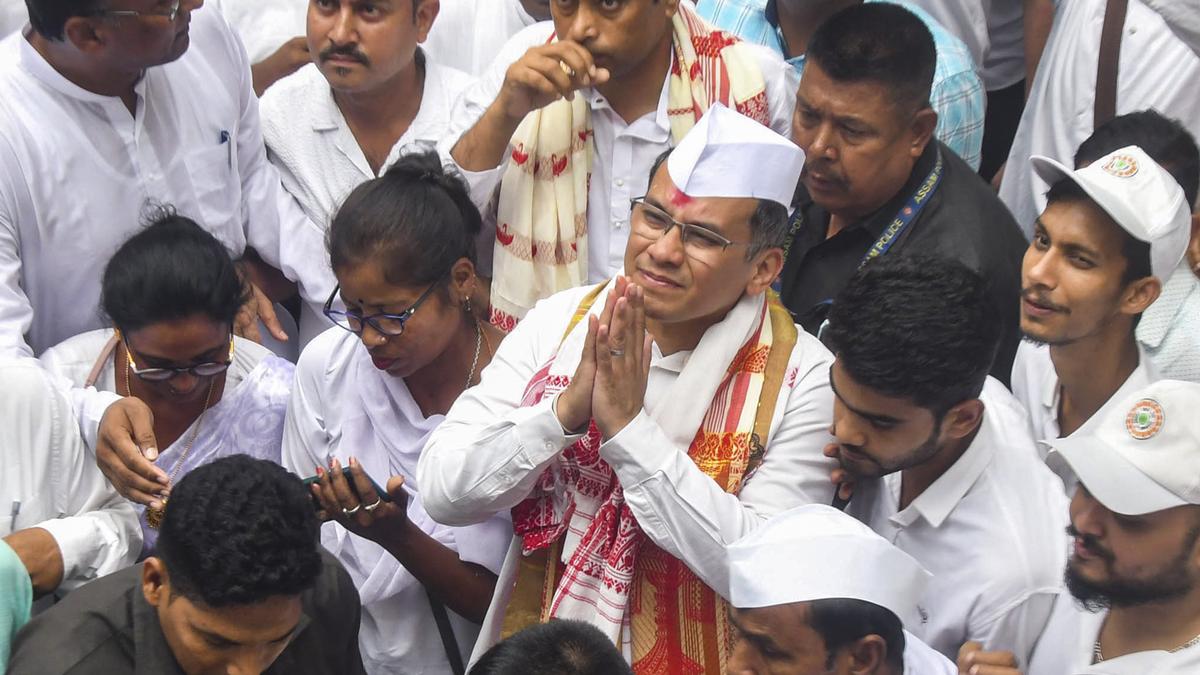TEL AVIV: The Indian mission in Israel on Sunday issued a fresh “important advisory” for its nationals after attacks on the Jewish State by Iran with hundreds of projectiles, advising them to stay calm and adhere to safety protocols.
In an unprecedented attack, Iran and its proxies launched 330 missiles and drones on Israel on Saturday in retaliation to an alleged attack by Israel on a diplomatic installation of the Islamic Republic in Damascus in which several people were killed, including two top commanders.
“In light of the recent events in the region, all Indian nationals in Israel are advised to stay calm and adhere to the safety protocols issued by the local authorities,” the Indian mission said in the “important advisory” advisory posted on its social media handles.
“The Embassy is closely monitoring the situation and it is in touch with the Israeli authorities and Indian community members to ensure the safety of all our nationals,” it added.
It also urged Indian nationals to register with the embassy at a given link.
The Indian embassy had also issued an advisory on Friday amid growing speculation of a retaliatory attack by Iran advising its nationals to “avoid unnecessary travel, remain calm and follow safety guidelines issued by the local authorities”.
It was the first time that the Islamic Republic launched an attack on the Jewish State from its own soil.
Despite the barrage of projectiles fired on Israel, none of the countries have taken any steps so far to evacuate their nationals, even though some of them, including the US, have issued advisories.
Schools and other educational institutions in Israel have suspended their activities till Monday but government offices and private businesses largely are functioning as usual with the government instructing all to follow guidelines being issued by the Home Front.
Israel Defence Forces (IDF) spokesperson said that 99 per cent of the roughly 330 missiles and drones launched by Iran were intercepted, but that “the threat is not over”.
Iran has warned Israel of a larger attack on its territory should it retaliate, adding that US bases would be targeted if Washington backs any Israeli military action against Iran.
The United States, France, Britain and Jordan are said to have helped intercept the projectiles fired by Iran.
“We intercepted, we stopped [the attack]. Together we will win,” Israeli Prime Minister Benjamin Netanyahu said in a tweet on Social media platform X, formerly Twitter.
Hamas called the Iranian attack a “natural right”.
Iranian threat had led to worldwide diplomatic initiatives to thwart a possible further conflagration in the region already struggling with Israel’s offensive in Gaza following a terror attack carried out by Hamas in its territory on October 7 and also regular exchange of fire between the Jewish state and Lebanese Shia faction Hezbollah, which joined the war in solidarity with Hamas.
Houthis, considered Iran’s proxy in Yemen, and other factions seen as close to Tehran have also from time to time carried out attacks against Israel and assets of other countries that seem to be supportive of the Jewish state, disrupting international waters and global trade routes.
Some analysts believe that the United States, preparing for elections, will not be supportive of an Israeli retaliation as it can shake up the oil market and cause further economic turmoil that can adversely impact President Joe Biden’s re-election bid.
In an unprecedented attack, Iran and its proxies launched 330 missiles and drones on Israel on Saturday in retaliation to an alleged attack by Israel on a diplomatic installation of the Islamic Republic in Damascus in which several people were killed, including two top commanders.
“In light of the recent events in the region, all Indian nationals in Israel are advised to stay calm and adhere to the safety protocols issued by the local authorities,” the Indian mission said in the “important advisory” advisory posted on its social media handles.
“The Embassy is closely monitoring the situation and it is in touch with the Israeli authorities and Indian community members to ensure the safety of all our nationals,” it added.
It also urged Indian nationals to register with the embassy at a given link.
The Indian embassy had also issued an advisory on Friday amid growing speculation of a retaliatory attack by Iran advising its nationals to “avoid unnecessary travel, remain calm and follow safety guidelines issued by the local authorities”.
It was the first time that the Islamic Republic launched an attack on the Jewish State from its own soil.
Despite the barrage of projectiles fired on Israel, none of the countries have taken any steps so far to evacuate their nationals, even though some of them, including the US, have issued advisories.
Schools and other educational institutions in Israel have suspended their activities till Monday but government offices and private businesses largely are functioning as usual with the government instructing all to follow guidelines being issued by the Home Front.
Israel Defence Forces (IDF) spokesperson said that 99 per cent of the roughly 330 missiles and drones launched by Iran were intercepted, but that “the threat is not over”.
Iran has warned Israel of a larger attack on its territory should it retaliate, adding that US bases would be targeted if Washington backs any Israeli military action against Iran.
The United States, France, Britain and Jordan are said to have helped intercept the projectiles fired by Iran.
“We intercepted, we stopped [the attack]. Together we will win,” Israeli Prime Minister Benjamin Netanyahu said in a tweet on Social media platform X, formerly Twitter.
Hamas called the Iranian attack a “natural right”.
Iranian threat had led to worldwide diplomatic initiatives to thwart a possible further conflagration in the region already struggling with Israel’s offensive in Gaza following a terror attack carried out by Hamas in its territory on October 7 and also regular exchange of fire between the Jewish state and Lebanese Shia faction Hezbollah, which joined the war in solidarity with Hamas.
Houthis, considered Iran’s proxy in Yemen, and other factions seen as close to Tehran have also from time to time carried out attacks against Israel and assets of other countries that seem to be supportive of the Jewish state, disrupting international waters and global trade routes.
Some analysts believe that the United States, preparing for elections, will not be supportive of an Israeli retaliation as it can shake up the oil market and cause further economic turmoil that can adversely impact President Joe Biden’s re-election bid.






